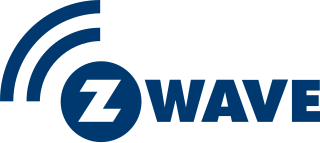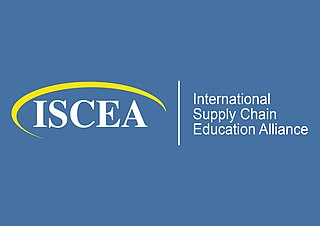Professional certification, trade certification, or professional designation, often called simply certification or qualification, is a designation earned by a person to assure qualification to perform a job or task. Not all certifications that use post-nominal letters are an acknowledgement of educational achievement, or an agency appointed to safeguard the public interest.

A packet analyzer is a computer program or computer hardware such as a packet capture appliance that can analyze and log traffic that passes over a computer network or part of a network. Packet capture is the process of intercepting and logging traffic. As data streams flow across the network, the analyzer captures each packet and, if needed, decodes the packet's raw data, showing the values of various fields in the packet, and analyzes its content according to the appropriate RFC or other specifications.
Professional development, also known as professional education, is learning that leads to or emphasizes education in a specific professional career field or builds practical job applicable skills emphasizing praxis in addition to the transferable skills and theoretical academic knowledge found in traditional liberal arts and pure sciences education. It is used to earn or maintain professional credentials such as professional certifications or academic degrees through formal coursework at institutions known as professional schools, or attending conferences and informal learning opportunities to strengthen or gain new skills.

Certified Management Accountant (CMA) is a professional certification credential in the management accounting and financial management fields. The certification signifies that the person possesses knowledge in the areas of financial planning, analysis, control, decision support, and professional ethics. There are many professional bodies globally that have management accounting professional qualifications. The main bodies that offer the CMA certification are:
- Institute of Cost Accountants of India;
- Institute of Management Accountants USA;
- Institute of Certified Management Accountants (Australia);
- Certified Management Accountants of Canada.
Wi-Fi Protected Access (WPA), Wi-Fi Protected Access 2 (WPA2), and Wi-Fi Protected Access 3 (WPA3) are the three security certification programs developed after 2000 by the Wi-Fi Alliance to secure wireless computer networks. The Alliance defined these in response to serious weaknesses researchers had found in the previous system, Wired Equivalent Privacy (WEP).
Deep packet inspection (DPI) is a type of data processing that inspects in detail the data being sent over a computer network, and may take actions such as alerting, blocking, re-routing, or logging it accordingly. Deep packet inspection is often used for baselining application behavior, analyzing network usage, troubleshooting network performance, ensuring that data is in the correct format, checking for malicious code, eavesdropping, and internet censorship, among other purposes. There are multiple headers for IP packets; network equipment only needs to use the first of these for normal operation, but use of the second header is normally considered to be shallow packet inspection despite this definition.

Computer forensics is a branch of digital forensic science pertaining to evidence found in computers and digital storage media. The goal of computer forensics is to examine digital media in a forensically sound manner with the aim of identifying, preserving, recovering, analyzing, and presenting facts and opinions about the digital information.

The Wi-Fi Alliance is a non-profit organization that owns the Wi-Fi trademark. Manufacturers may use the trademark to brand products certified for Wi-Fi interoperability. It is based in Austin, Texas.
CCNA is an entry-level information technology (IT) certification offered by Cisco Systems. CCNA certification is widely recognized in the IT industry as the foundational step for careers in IT positions and networking roles.
In the field of computer network administration, pcap is an application programming interface (API) for capturing network traffic. While the name is an abbreviation of packet capture, that is not the API's proper name. Unix-like systems implement pcap in the libpcap library; for Windows, there is a port of libpcap named WinPcap that is no longer supported or developed, and a port named Npcap for Windows 7 and later that is still supported.

Z-Wave is a wireless communications protocol used primarily for residential and commercial building automation. It is a mesh network using low-energy radio waves to communicate from device to device, allowing for wireless control of smart home devices, such as smart lights, security systems, thermostats, sensors, smart door locks, and garage door openers. The Z-Wave brand and technology are owned by Silicon Labs. Over 300 companies involved in this technology are gathered within the Z-Wave Alliance.
Cisco Certifications are the list of the Certifications offered by Cisco Systems. There are four to five levels of certification: Associate (CCNA/CCDA), Professional (CCNP/CCDP), Expert (CCIE/CCDE) and recently, Architect, as well as nine different paths for the specific technical field; Routing & Switching, Design, Industrial Network, Network Security, Service Provider, Service Provider Operations, Storage Networking, Voice, Datacenter and Wireless.
There are also a number of specialist technicians, sales, Business, data center certifications and CCAI certified instructors.

A computer repair technician is a person who repairs and maintains computers and servers. The technician's responsibilities may extend to include building or configuring new hardware, installing and updating software packages, and creating and maintaining computer networks.

Wireshark is a free and open-source packet analyzer. It is used for network troubleshooting, analysis, software and communications protocol development, and education. Originally named Ethereal, the project was renamed Wireshark in May 2006 due to trademark issues.
Following is a partial list of professional certifications in financial services, with an overview of the educational and continuing requirements for each; see Professional certification § Accountancy, auditing and finance and Category:Professional certification in finance for all articles.
Nortel Certifications are IT professional certifications for Nortel products and IEEE standard technologies. There were two major levels of certification, Specialist and Expert. Within each level were three sublevels; technology, support, and design. The certification exams were administered at Prometric testing centers. Various training courses were held by Nortel regional training partners, such as Global Knowledge. As Nortel began to exit certain businesses and divest itself, they retired various certification training programs and exams. They retired the GSM-related programs in March 2008, Optical and Carrier VoIP programs in September 2009, and lastly the Enterprise programs in November 2010.
Riverbed Technology LLC is an American information technology company. Its products consist of software and hardware focused on Unified Observability, Network Visibility, End User Experience Management, network performance monitoring, application performance management, and wide area networks (WANs), including SD-WAN and WAN optimization.
The Computing Technology Industry Association, more commonly known as CompTIA, is an American non-profit trade association that issues professional certifications for the information technology (IT) industry. It is considered one of the IT industry's top trade associations.
Avnu Alliance is a consortium of member companies working together to create an interoperable ecosystem of low-latency, time-synchronized, highly reliable networking devices using the IEEE open standard, Time-Sensitive Networking (TSN) and its Pro AV networking protocol, Milan. Avnu Alliance creates comprehensive certification programs to ensure interoperability of network devices. In the Professional Audio Video (AV) industry, Alliance member companies worked together to develop Milan: a standards-based, user-driven deterministic network protocol for professional media, that through certification, assures devices will work together at new levels of convenience, reliability, and functionality. Milan™ is a standards-based deterministic network protocol for real time media. Avnu Members may use the Avnu-certified or Milan-certified logo on devices that pass the conformance tests from Avnu. Not every device based on AVB or TSN is submitted for certification to the Avnu Alliance. The lack of the Avnu logo does not necessarily imply a device is incompatible with other Avnu-certified devices. The Alliance, in conjunction with other complimentary standards bodies and alliances, provides a united network foundation for use in professional AV, automotive, industrial control and consumer segments.

The International Supply Chain Education Alliance (ISCEA) is a certifying body. Founded in 2003 and currently holding over 100,000 members, ISCEA has its World HQ office in Beachwood, OH, USA and regional offices in LATAM, EMEA and APAC. ISCEA is the governing body for the Ptak Prize.






